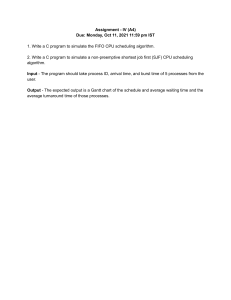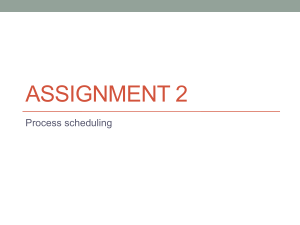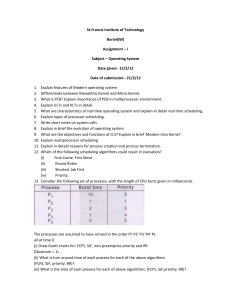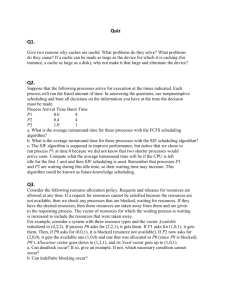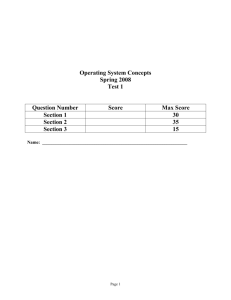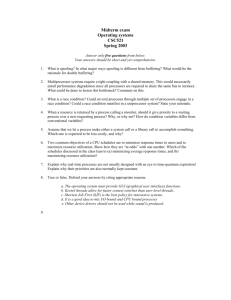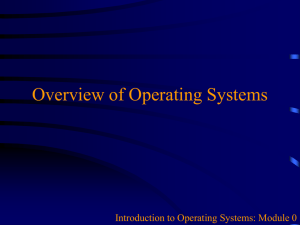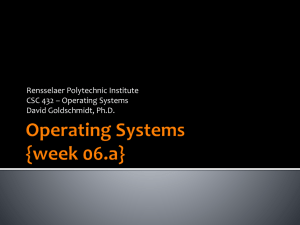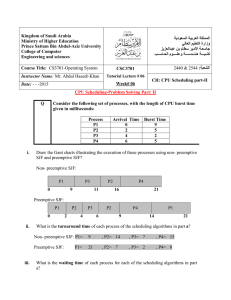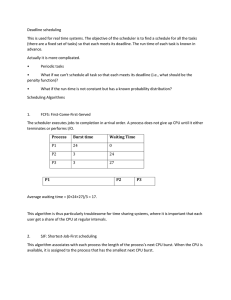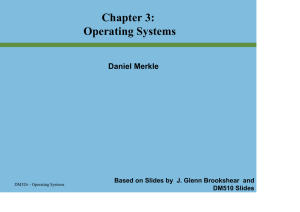HW-3
advertisement
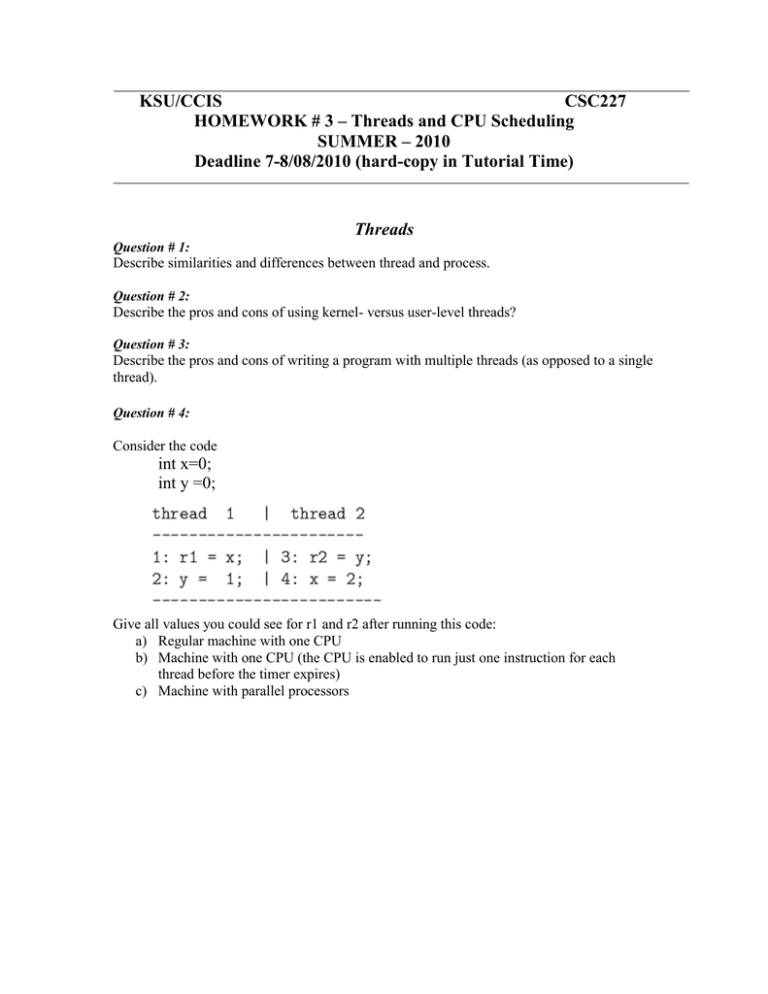
KSU/CCIS CSC227 HOMEWORK # 3 – Threads and CPU Scheduling SUMMER – 2010 Deadline 7-8/08/2010 (hard-copy in Tutorial Time) Threads Question # 1: Describe similarities and differences between thread and process. Question # 2: Describe the pros and cons of using kernel- versus user-level threads? Question # 3: Describe the pros and cons of writing a program with multiple threads (as opposed to a single thread). Question # 4: Consider the code int x=0; int y =0; Give all values you could see for r1 and r2 after running this code: a) Regular machine with one CPU b) Machine with one CPU (the CPU is enabled to run just one instruction for each thread before the timer expires) c) Machine with parallel processors CPU Scheduling Question # 5: Explain the advantages and disadvantages of Shortest-Job-First (SJF) scheduling. Explain why we say that the Multi-Level-Feedback-Queue (MLFQ) is an approximation to SJF. Why does MLFQ not have the disadvantages of SJF? Question # 6: Suppose that the following processes arrive for execution at the times indicated. Each process will run the listed amount of time. In answering the question, the non-preemptive scheduling and base all decisions on the information you have at the time the decision must be made. P1 P2 P3 Arrival Time CPU Burst 0.0 0.4 1.0 8 4 1 a) Fill the entries of the following table for each indicated scheduling policy and each process. Ignore context switching overhead. Scheduling Policy Turnaround Time P1 P2 P3 Average Turnaround Time FCFS SJF (Non-Preemptive) b) The SJF algorithm is supposed to improve performance, but notice that we chose to run process P1 at time 0 because we did not know that two shorter processes would arrive soon. Compute what the average turnaround time will be if the CPU is left idle for the first 1 unit and then SJF scheduling is used. Remember that process P1 and P2 are waiting during this idle time, so their waiting time may increase. Scheduling Policy SJF (Non-Preemptive) Turnaround Time P1 P2 P3 Average Turnaround Time
